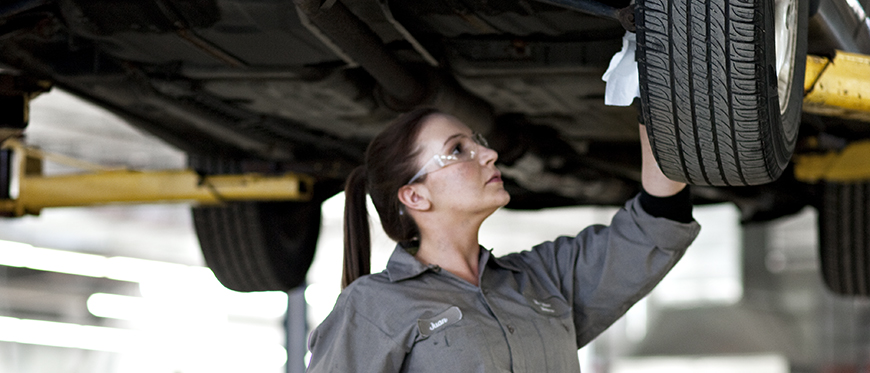People are keeping their cars longer and longer – an average of nearly 12 years according to one industry survey. That means that auto shop owners can significantly boost the lifetime value of each and every customer if they master these five keys to keeping customers happy today…tomorrow…and farther into the future than ever before:
1. Fearless transparency
2. Hard-earned trust
3. Loyalty that’s recognized and rewarded
4. Sustainability that sustains relationships
5. Communication and conversation
Fearless transparency clears the way to auto shop customer satisfaction
Perhaps the biggest question, and fear, for any auto shop customer is “How much is this really going to cost me – and will I get a fair price?” One recent survey found that nearly three-quarters of auto shop customers felt they’d been overcharged. The best way to fight this fear is to be crystal clear with your pricing. Providing pricing parameters online will help lower consumer defenses enough that they’ll actually come in to the shop (in fact, 55% say the availability of online pricing would be enough to choose one shop over another). Once there, providing a clear, detailed, no-pressure estimate for service will help close the deal.
Hard-earned trust keeps auto repair customers coming back
Clear, no-surprises pricing gets customers in the door, but that’s just the start of earning the trust required for repeat business. Prior to performing service, you should clearly explain exactly what you’ll be doing and the parts you’ll using, even offering to show them the parts and packaging, to prove their quality.
Post-service prove you’ve got their best interest at heart by offering them easy online access to service records and reminders. Roughly two-thirds of consumers (about the same percentage who distrust auto shops) say they want to be able to track their maintenance history, get service reminders, and be able to compare your service recommendations with OEM guidelines, all from one source online. Build that kind of website and you’ll build trust as well.
Customer loyalty programs also reward auto shops
So, now you’ve got a good customer and you even got them to come back. Job well done, no?
Well, no, not quite. Now it’s time to make them a card-carrying member of your loyal tribe, by offering them a loyalty card can lead to discounts, bonuses and even rebates.
Your best customers, however, get a kick out of more than kickbacks – in an increasingly personal world, they crave personal recognition for their faithfulness. Show that you know them upon arrival by making sure that your employees are equipped to greet them by name. Consider assigning a specific service rep as a principal, personal point of contact. Feature customer stories in your newsletters or in-store displays and communications. In short, demonstrate that you value them as much as you value their business.
The combination of rewards, recognition and respect can be especially important to an often overlooked segment of auto shop customers – the $300 billion market opportunity represented by women. That respect should be evident in everything from the quality of coffee to the cleanliness of restrooms, to the welcome (and special areas) offered to the children they and their male counterparts may bring along.
Auto shop sustainability can sustain customer relationships
In addition to showing respect for the individual, customers want you to demonstrate respect for the planet, too. This is a particularly important factor for one of your most important customer segments, millennials, 73% of whom prefer to do business with sustainable brands.
Make sure you have a sustainability program in place, including everything from using recycled paper shop towels (more absorbent, and less polluting, than shop rags) to setting protocols for safely disposing of used fluids. Then publicize your efforts, so you get credit for your investment in the environment, and your customers get credit for theirs.
Communication and conversation keep any relationship healthier
Long-term loyalty depends on more than company-to-customer messaging. It’s a matter of human-to-human communication.
Auto shops that achieve that higher level of connection excel at two factors: personalization and putting the “co” in communication. As mentioned above, personalization can be as simple as a friendly, we-remember-your-name greeting. Or it can be as sophisticated as data-driven service reminders that keep customers current on their own automotive needs and opportunities, right down to providing them apps that help calculate the ROI, in terms of automotive value and longevity, of particular repairs or automotive enhancements.
Communications should not only be personalized, but also mutual. That means providing ample, routine opportunities for feedback and actively engaging customers online, particularly if they post negative reviews, which should be acknowledged, empathized (but not agreed) with and encouraged to be discussed offline.
Older cars are the new opportunity
Whether it’s baby boomers looking to financially downshift for their fixed-income years, or millennials just starting out as auto owners needing to minimize expenses, people are looking to get more miles, and years, out of their vehicles. As the lifetime of cars increases, with the average owner spending nearly $1200 a year on repairs, so does the importance of customer lifetime value. Pay attention to the five points above, and you’ll have a good start on creating longer, more profitable customer relationships.
SOURCES:
Car and Driver: Americans Are Keeping Their Cars Longer
Body Shop Business: Survey: Auto Shop Customers Want Better Communications
SMARTFEM Magazine: What Women Want in an Auto Repair Shop
Forbes: Millennials Driving Brands to Practice Socially Responsible Marketing
BBC-Industrial: How Your Auto Shop Can Make More from a $300 Billion Overlooked Market
PR Newswire: Cox Automotive Survey 2018-19
Car Talk: Two Thirds of Americans Don’t Trust Auto Repair Shops
ISHN: Industrial Shop Towels: Pollutant or Solid Waste
Jay Baer/Convince & Convert: Why you must respond to every negative review
AAA: Cost to own a vehicle
